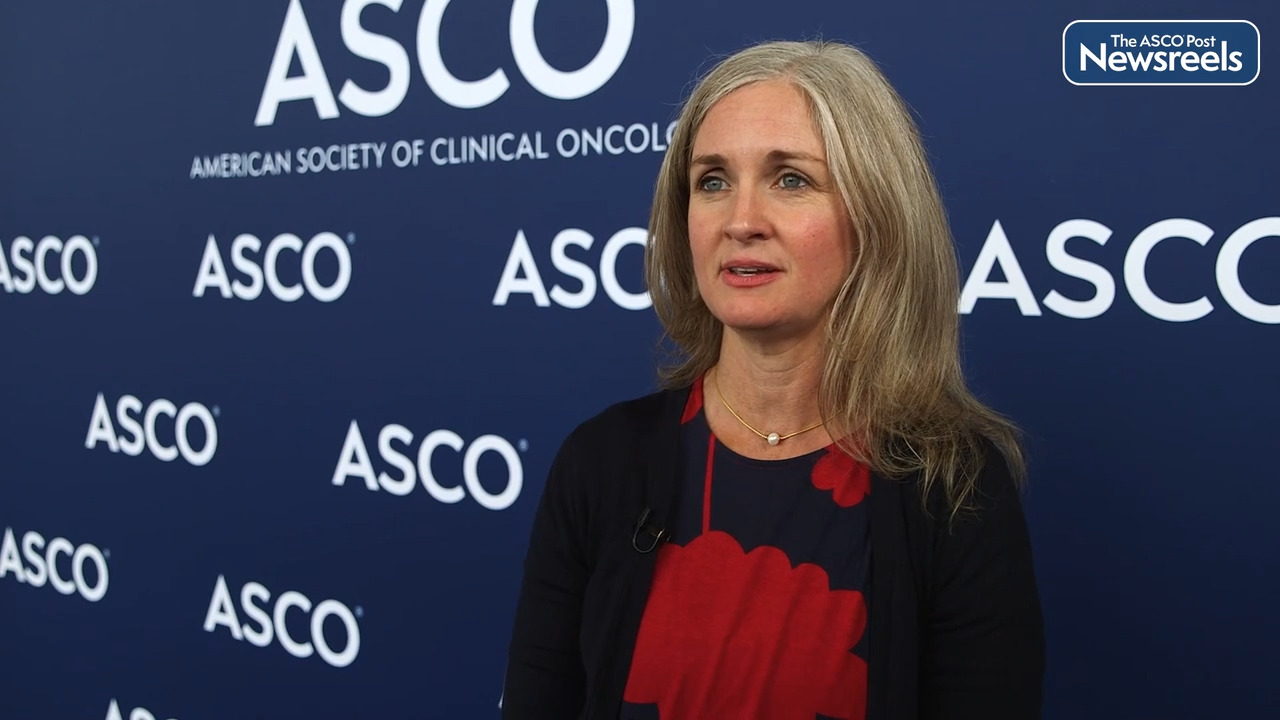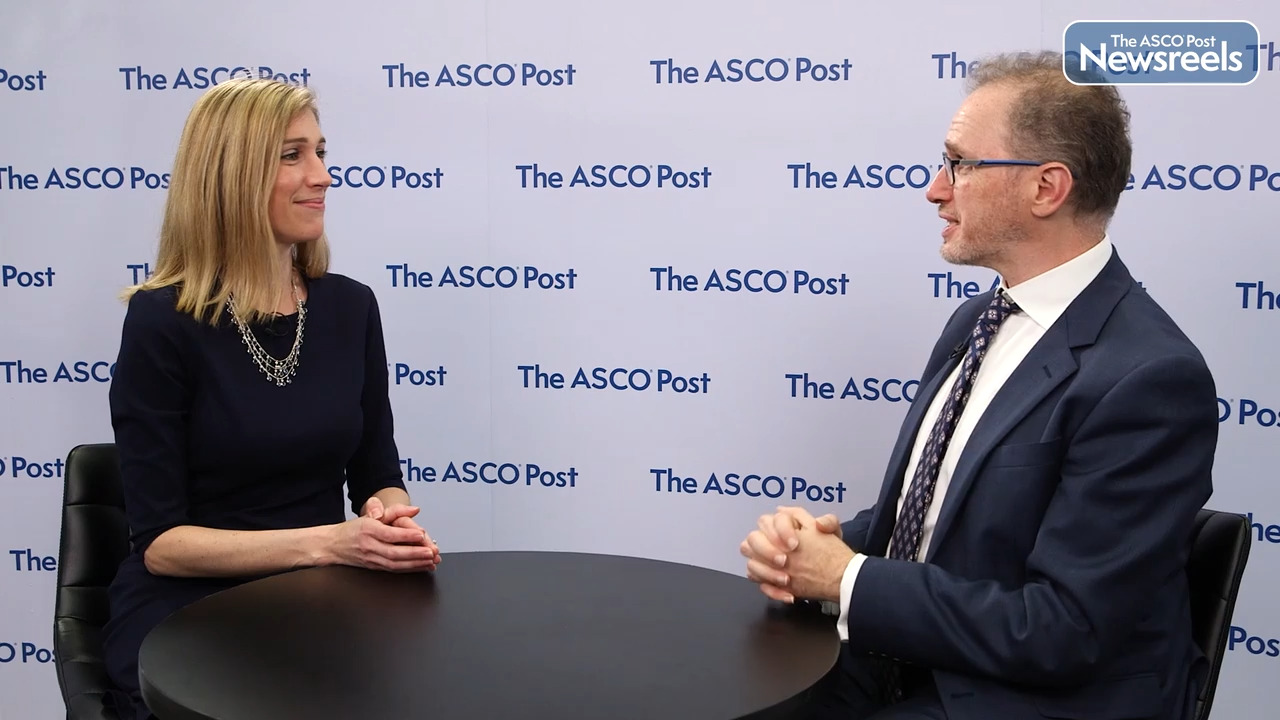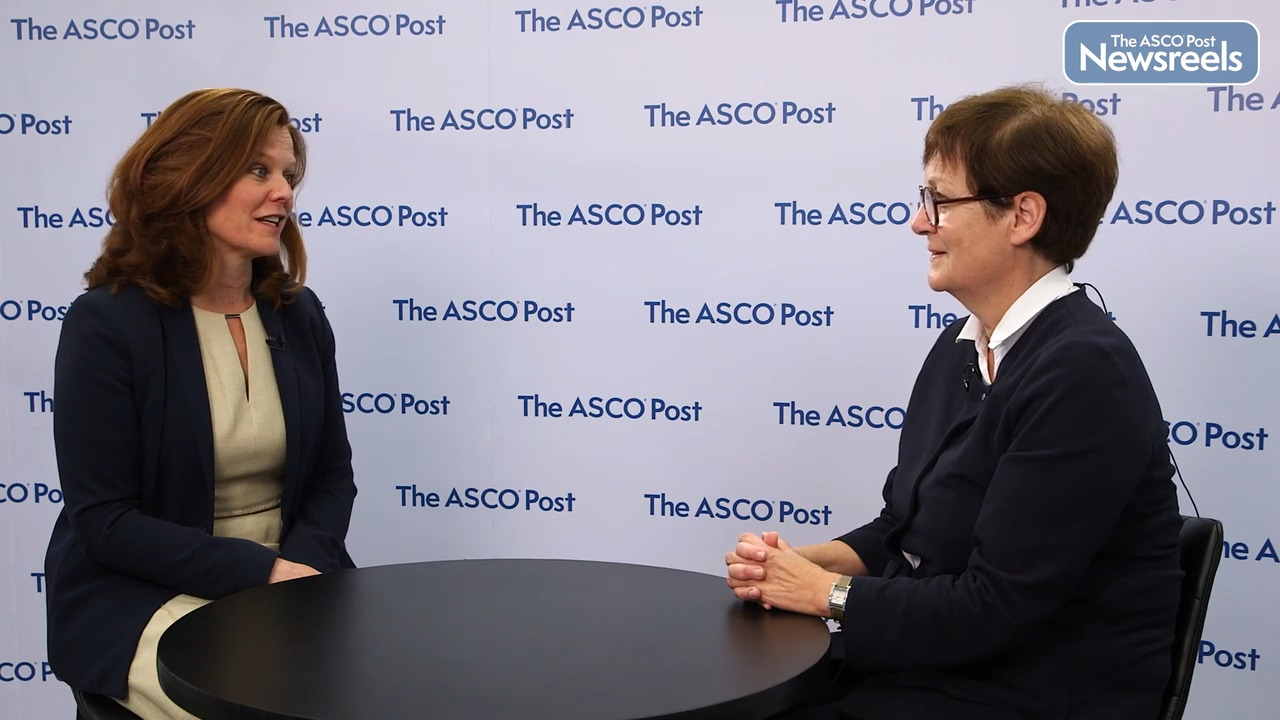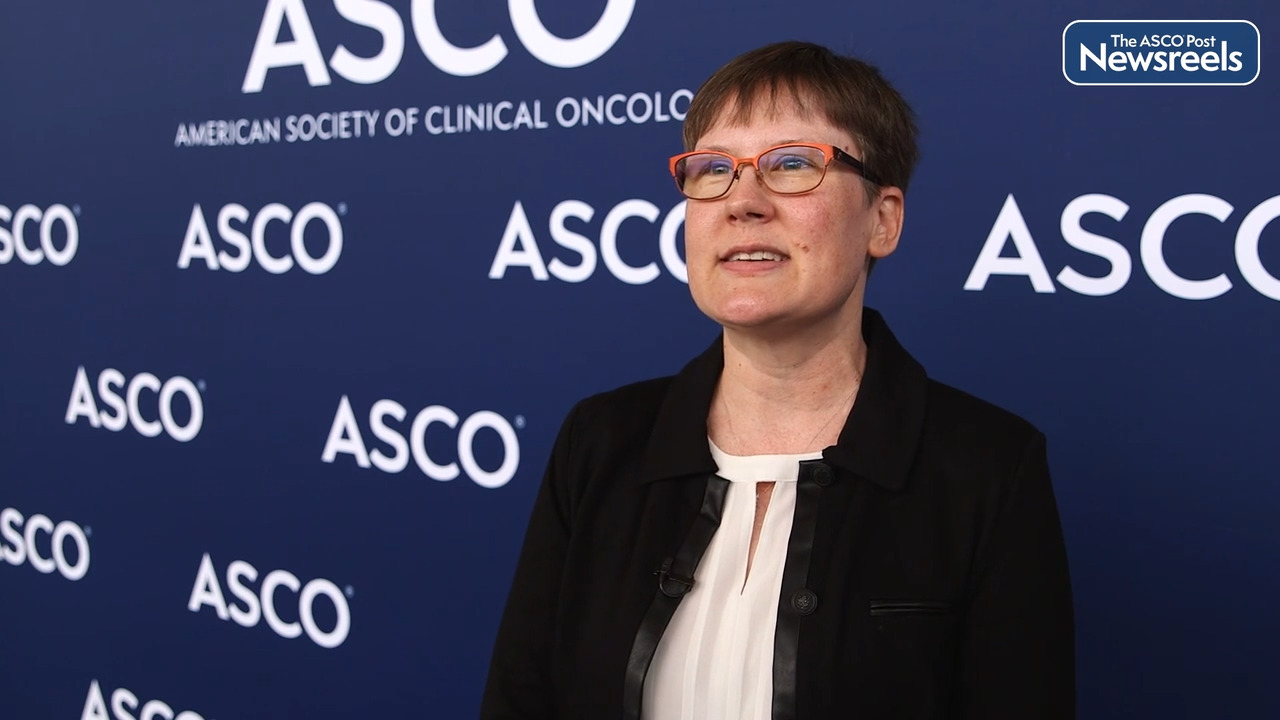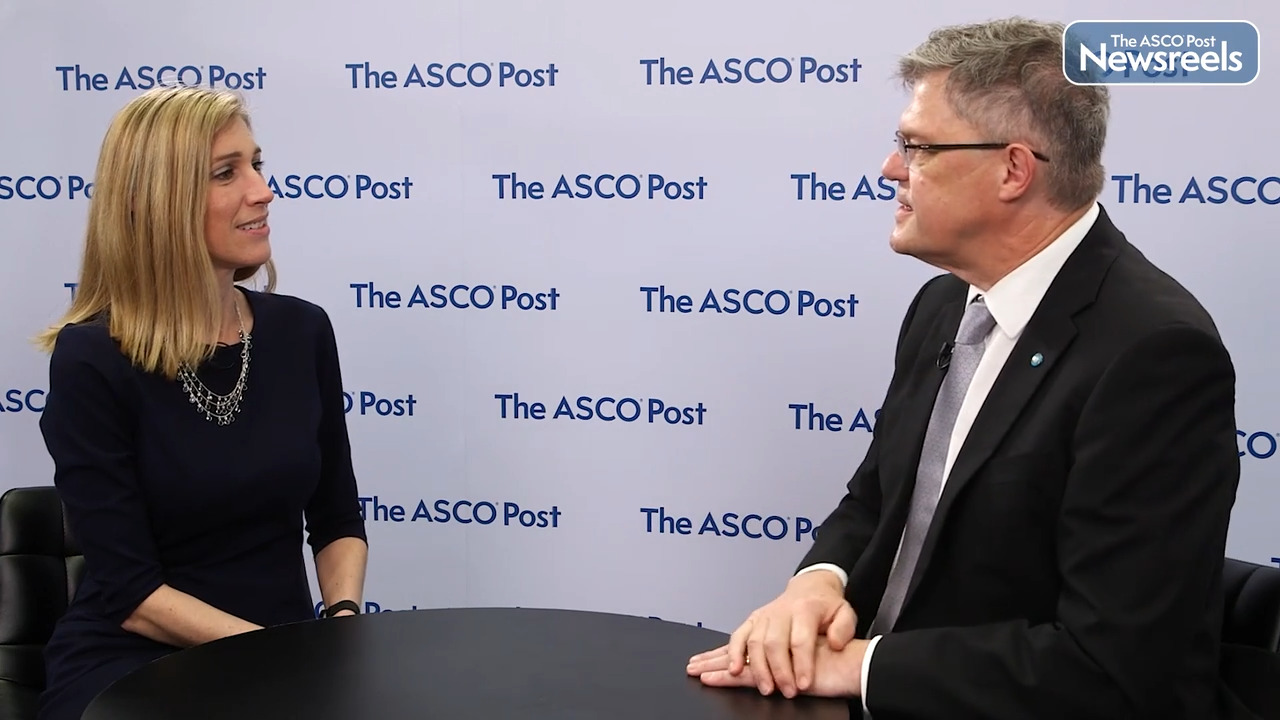Etienne Brain, MD, PhD, on Breast Cancer: Adjuvant Endocrine Therapy With or Without Chemotherapy in Older Patients
2022 ASCO Annual Meeting
Etienne Brain, MD, PhD, of the Institut Curie, discusses phase III findings from the Unicancer ASTER 70s trial, in which patients aged 70 or older with estrogen receptor–positive, HER2-negative breast cancer and a high genomic grade index received adjuvant endocrine therapy with or without chemotherapy. The data did not find a statistically significant overall survival benefit with this treatment after surgery (Abstract 500).
Transcript
Disclaimer: This video transcript has not been proofread or edited and may contain errors.
ASTER 70s study is a landmark study, which has been conducted in older women with luminal breast cancer in adjuvant setting questioning the addition of chemotherapy to endocrine treatment. The rationale behind is that the literature is very limited in terms of data published for the use of adjuvant chemotherapy in this situation in older ones. Multimorbidity competes with cancer on outcome and therapeutic ratio is also more narrow because there are higher risk of side effects in this population.
This trial screened near 2000 patients with the genomic grade index, the GGI, to assess the aggressivity of the disease and to spare the burden of chemotherapy in those patients with low-GGI tumor, while those with a high-GGI tumor were randomized between endocrine treatment alone as a standard arm versus chemotherapy followed by endocrine treatment. Near 2000 patients enrolled, 1,100 randomized between the two arms.
This trial shows, on the primary endpoint, which was overall survival by intent-to-treat analysis, that chemotherapy doesn't add a significant benefit in addition to endocrine treatment. That's the first message of caution from this study. Second one is that we can look at different subgroups and perform also the analysis according to the per protocol concept. This modifies or brings a nuance in the results, but I would say that the final potential benefit on overall survival in this case remains marginal. And in this population of older women, it is a key point and a double cautious message.
The next step for this study will be to try to improve the discriminative capacity of this kind of signature to identify those who could benefit still from chemotherapy, despite these global message and results on overall survival. This will be certainly possible with the use of the mass and the volume of data which has been collected in the randomized groups in this study, because there was a longitudinal collection of geriatric data, quality of life data, and treatment acceptability socioeconomic data, which will be very helpful to modelize differently, the prognosis of these ladies.
That's in the near future, and I think what brings the most in terms of information ASTER 70s, is that on the provisor that you change a bit of rules for inclusion criteria, because in this study we had very flexible inclusion criteria, we made a focus on quality of life and we use a single informed consent for screening and randomization, on the provisor that you facilitate or you simplify the processes, you can run large studies in a vast population, which is very often not considered for clinical trials left behind.
Related Videos
The ASCO Post Staff
Tara B. Sanft, MD, of Yale University, discusses the results of the LEANer study (Lifestyle, Exercise, and Nutrition Early After Diagnosis) in women with breast cancer. It showed that patients with newly diagnosed disease who were just starting chemotherapy could improve physical activity and diet quality. While both groups had high rates of treatment completion, women in the intervention who exercised at or above the recommended levels did better in terms of treatment completion, with fewer dose reductions and delays (Abstract 12007).
The ASCO Post Staff
Alicia K. Morgans, MD, MPH, of Dana-Farber Cancer Institute, and Michael S. Hofman, MBBS, of Peter MacCallum Cancer Centre, University of Melbourne, discuss follow-up results on LuPSMA vs cabazitaxel in patients with metastatic castration-resistant prostate cancer progressing after docetaxel treatment. The findings suggest that LuPSMA is a suitable option for this population, with fewer adverse events, higher response rates, improved patient-reported outcomes, and similar overall survival compared with cabazitaxel (Abstract 5000).
The ASCO Post Staff
Ann H. Partridge, MD, MPH, of Dana-Farber Cancer Institute, and Véronique Diéras, MD, of the Centre Eugène Marquis, discuss the many challenges posed by next-generation antibody-drug conjugates (ADCs). They include side effects such as hematotoxicity, gastrointestinal toxicities, and interstitial lung disease; tumor targeting and payload release; drug resistance; and the urgent need to understand ADCs’ mechanisms of action to better sequence and combine drugs.
The ASCO Post Staff
Carryn M. Anderson, MD, of the University of Iowa Hospital, discusses phase III results of the ROMAN trial of avasopasem manganese for patients with severe oral mucositis who are receiving chemoradiotherapy for locally advanced, nonmetastatic head and neck cancer. Compared with placebo, avasopasem manganese improved severe oral mucositis (Abstract 6005).
The ASCO Post Staff
Alicia K. Morgans, MD, MPH, of Dana-Farber Cancer Institute, and Ian D. Davis, PhD, MBBS, of Monash University and Eastern Health, discuss the latest findings from ANZUP Cancer Trials Group’s ENZAMET cooperative group trial of enzalutamide in patients with metastatic hormone-sensitive prostate cancer. The results corroborate the benefit of enzalutamide with improved overall survival, and involve some exploratory subgroup analyses (Abstract LBA5004).
